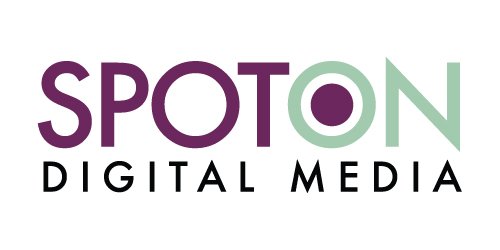What You Need to Know About Content, SEO & Data: Lessons from Digital Summit
Recently, our team attended Digital Summit Tampa to gain insights from industry leaders across several industries and expertise. From B2C to B2B, large companies and small companies from all over the country, the event resulted in great information and perspective we are eager to share and implement.
Below are some of our top takeaways for marketers across three key digital areas: content, SEO, and data.
Content
Contrary to the popular adage “if it ain’t broke, don’t fix it”, and as SpotOn digital marketers, it’s in our core values to be hungry for knowledge and constantly evaluate. Being data-driven and thoughtfully creative means experimenting with content like a creative scientist. It’s a delicate balance of informed decision making and testing and learning based on primary and secondary data on the consumer and their behaviors. Failure is not the opposite of success, it’s a data point to learn from.
Additionally, do whatever it takes to know your customer best. On your quest in doing so, keep in mind that an insight isn’t always a number and that there may be other brands out there that have already connected with your customer you can learn from. Human-centered content is about articulating your insight and message with clarity, brevity, and empathy so you make a connection with your customers based on their motivations while giving them a compelling reason to take action.
SEO
There are 40,000 Google searches a minute, that’s about 3.5 billion a day and 1 trillion search queries a year, furthermore, 15% of them have never been typed before. SEO has evolved beyond metadata to a highly data-driven content marketing initiative aimed at being as relevant as possible for your customers. Between your own website, your competitors, and other publishers, there are a ton of ways to complete keyword and content research to be competitive. Additionally, Google is constantly optimizing its algorithm based on intent and context. In order to publish content that will be ranked, start with long-form cornerstone content that establishes you as an authority in your industry. Longer, comprehensive content helps answer more questions and is linkable for smaller, casual pieces. The more often you can post new blogs to your site, the more indexed pages and keywords you will have increased visibility and link opportunities.
While Google may have it’s own algorithms to keep up with, it’s important to not forget the human algorithm that may be right in front of you. Take a deep into your current customers/prospects/followers and create a word cloud based on how they identify themselves and describe their interests. There may be more insight there than you think, even for b2b companies.
Worried about elusive backlinks? If you don’t have a dedicated team working on guest posting and outreach, consider engaging with your targets and authorities more on social media to expand your audience and grow your relationships.
Data & Analytics
Data can take on many forms, whether you are working for an agency or a brand, whether you are reporting historical data or forecasting value with analytics. In the world of MarTech, data points available have grown from 150 in 2011 to more than 6300 today. Marketers are spending more time on data and CMOs are tripling their analytics resources. With all that data, it can be difficult to deduce thoughtful, actionable insights for your business, especially with limited resources.
So how do you best gather and analyze data to make confident decisions for your business without a team of data analysts? Don’t treat analytics as a project rather than a critical business strategy. First, understand your KPIs along the customer journey and identify where you can have the greatest impact. Additionally, know your audience when presenting data and analytics. Speak in investment terms to shift the perception that marketing is an expense rather than an investment. Be able to simply answer, in X days we spent X amount, these are the results, and this is the impact on our business.
As marketers of growing companies, it’s important to articulate your value and have confidence in your tactics. As the digital marketing landscape evolves, let us focus on what’s important while you focus on your business.

